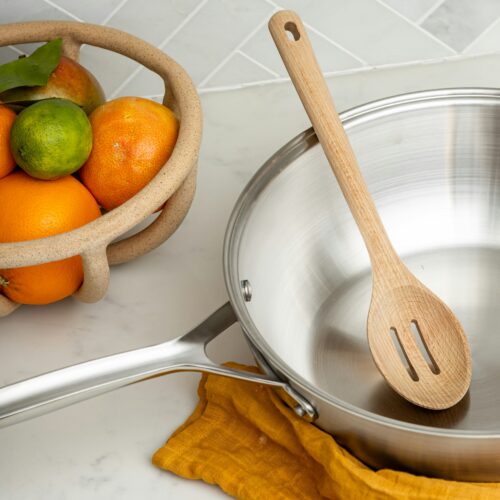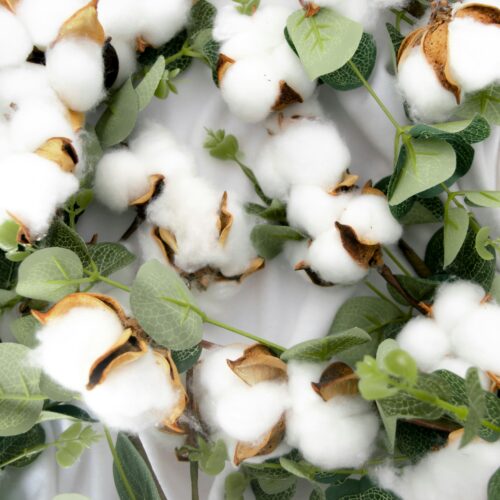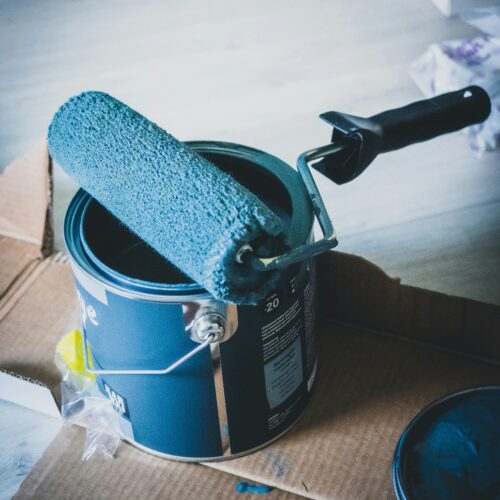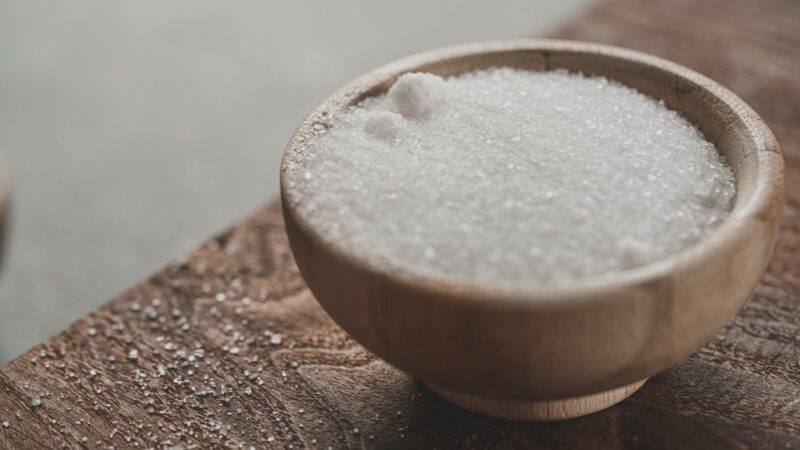PFAS Free Cookware UK – In recent years, there has been growing awareness of the dangers of PFAS chemicals in everyday cooking products. Consumers are now looking for safer alternatives to traditional non-stick cookware that contain these harmful substances. This article explores what PFAS chemicals are, why they are harmful, and how you can choose the best non-toxic cookware for healthier cooking options.
What Are PFAS & Why Are They Harmful?
PFAS (per- and polyfluoroalkyl substances) are a group of chemicals used in various consumer products, including non-stick cookware, food packaging, and cleaning products. These synthetic chemicals are valued for their heat resistance, water repellency, and nonstick properties. However, their environmental impact and potential health risks have raised significant concerns.
One of the most notorious PFAS chemicals is perfluorooctanoic acid (PFOA), previously used in the manufacturing process of traditional non-stick coating. Studies have linked exposure to PFOA and other PFAS chemicals to serious health issues, including:
- Increased risk of cancer
- Liver and kidney damage
- Hormonal disruptions
- Immune system suppression
- Reproductive health problems
PFAS chemicals do not break down easily in the environment or the human body, leading to long-term contamination of the food chain and water supply. Due to these risks, regulatory bodies and environmental charities like Fidra advocate for PFAS-free alternatives.
Why Switch To PFAS-Free Cookware?
Making the switch to PFAS-free cookware is one of the best decisions you can make for both your health and the environment. Here’s why:
- Reduce Health Risks – Exposure to PFAS chemicals has been linked to serious health issues, including cancer, hormonal imbalances, and organ damage. Choosing non-toxic cookware helps minimize these risks.
- Avoid Toxic Fumes – Non-stick pans with traditional coatings can release harmful fumes when exposed to high temperatures, potentially causing flu-like symptoms known as “Teflon flu.” PFAS-free cookware eliminates this concern.
- Safer for the Environment – PFAS chemicals persist in the environment, contaminating water supplies and wildlife. Using non-toxic cookware helps reduce overall pollution.
- Longer-Lasting Products – High-quality PFAS-free cookware, such as stainless steel and cast iron, tends to be more durable than traditional non-stick cookware, making it a better long-term investment.
- Better Cooking Performance – Many PFAS-free materials offer excellent heat retention and distribution, resulting in better cooking results and healthier meals.
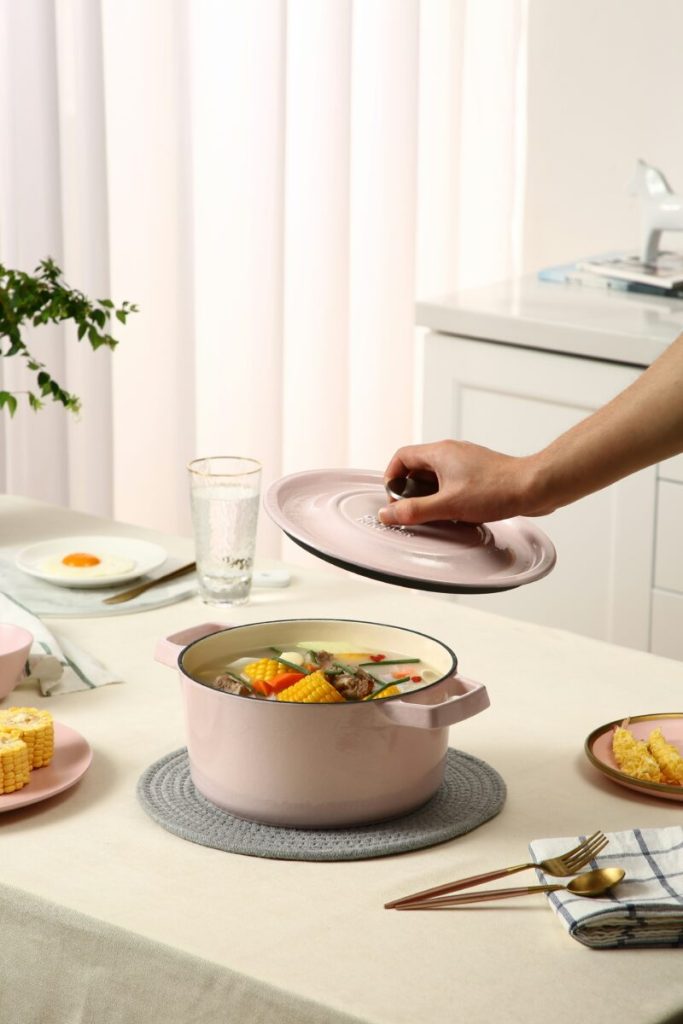
Understanding Harmful Substances In Cookware
When shopping for non-toxic cookware, it’s essential to understand the key harmful substances commonly found in traditional non-stick cookware. Here’s what you need to know about PTFE, PFAS, PFOA, Lead, and Cadmium:
PTFE (Polytetrafluoroethylene)
PTFE is a synthetic chemical commonly used in traditional non-stick coatings (such as Teflon). While PTFE itself is not considered highly toxic at low temperatures, it can release toxic fumes when heated above 260°C (500°F), potentially causing flu-like symptoms known as “Teflon flu.” Many non-stick frying pans use PTFE coatings, which is why PFAS-free alternatives are recommended for safer cooking.
PFAS (Per- and Polyfluoroalkyl Substances)
PFAS refers to a large group of chemicals used for their water-resistant and non-stick properties in cookware, food packaging, and cleaning products. These chemicals do not break down easily in the environment or the human body, leading to contamination of the food chain and serious health risks such as cancer, hormone disruption, and organ damage.
PFOA (Perfluorooctanoic Acid)
PFOA is a specific type of PFAS that was widely used in the manufacturing process of non-stick cookware until it was phased out due to its harmful effects on human health. Research links PFOA exposure to kidney and liver disease, immune system issues, and reproductive health problems. Although many cookware brands now claim to be “PFOA-free,” some still contain other PFAS chemicals.
Lead
Lead was historically used in some ceramic and enameled cookware, particularly in low-quality imports. Even in small amounts, lead exposure can cause serious health issues, especially in children, affecting brain development, the nervous system, and kidney function. Always ensure that ceramic cookware meets safety standards and is lead-free.
Cadmium
Cadmium is a heavy metal that has been used in some cookware glazes and coatings to create vibrant colours. However, cadmium exposure is toxic and can accumulate in the kidneys, liver, and bones, increasing the risk of cancer and other long-term health issues. Reputable cookware brands adhere to strict safety regulations to ensure their products are cadmium-free.
By avoiding cookware containing these harmful substances and opting for safer alternatives like stainless steel, cast iron, and ceramic non-stick coatings, you can make better choices for your health and the environment.Toxic Materials In Cookware To Avoid
Toxic Materials In Cookware To Avoid
When choosing cookware, it is essential to be aware of materials that may contain harmful chemicals. Some of the most toxic materials found in cookware include:
- Teflon (PTFE-coated non-stick cookware) – Contains PFAS chemicals, which can release toxic fumes at high temperatures.
- Aluminium cookware (non-anodized) – Can leach into food, potentially contributing to neurological disorders.
- Copper cookware (unlined) – Can lead to copper toxicity when not coated with a safe lining such as stainless steel.
- Nickel-containing stainless steel – Some low-quality stainless steel pans may contain high levels of nickel, which can cause allergic reactions.
- Plastic utensils and cookware – Can release harmful chemicals like BPA and phthalates when exposed to heat.
- Enameled cookware with lead or cadmium – Some low-quality enamel coatings may contain heavy metals that leach into food.
Health Benefits Of PFAS-Free Cookware
Choosing PFAS-free cookware can significantly reduce exposure to toxic chemicals and improve overall product safety in the kitchen. Some key benefits include:
- Healthier meals – Cooking on non-toxic surfaces means fewer harmful substances leach into your food.
- Better heat distribution – Many PFAS-free materials, such as stainless steel and cast iron, offer excellent heat retention and more even cooking.
- Safer cooking at high temperatures – PFAS-based non-stick coatings can release toxic fumes when heated to high heat, while PFAS-free alternatives remain stable under extreme conditions.
- Environmentally friendly choices – Opting for sustainable materials like ceramic pans or uncoated cast-iron pans helps reduce harmful chemical waste.
Best Non-Toxic Cookware Materials
When looking for the best non-toxic cookware, consider the following non toxic materials:
1.Stainless Steel Pans
- Durable and resistant to scratches
- No toxic fumes or chemical compounds
- Suitable for various hob types, including induction
2.Cast Iron Cookware
- Excellent heat retention and distribution
- Requires seasoning with olive oil for a natural nonstick surface
- Ideal for high-temperature cooking
3.Carbon Steel Pans
- Lightweight alternative to cast iron
- Develops a natural non-stick coating over time
- Used in professional test kitchens
4.Ceramic-Coated Pans
- Free from PFAS chemicals and synthetic coatings
- Easy cleaning with hot soapy water
- A sand derivative is used in the ceramic non-stick coating for enhanced safety
5.Uncoated Cast-Iron Pans
- Long-lasting and free from synthetic chemicals
- Requires regular maintenance but offers good value over time
UK Brands Offering PFAS-Free Cookware
Several well-known brands offer safer alternatives to traditional non-stick pans. Some market leaders in the UK include:
- Le Creuset – A well-known brand, known for its high-quality cast iron and ceramic cookware, offering excellent results and long-term durability. A great cast iron pan option if you can afford it.
- Always Pan – A brand name synonymous with stylish, multifunctional, and non-toxic cookware. A newbie in this space but they have a lot of great products if your budget can stretch that far.
- GreenPan – Specialises in ceramic non-stick coatings that are PFAS-free.
- Stellar Cookware – Offers stainless steel and uncoated cast-iron options with a focus on product safety.
- ProCook – Provides various consumer products, including carbon steel pans and ceramic pans. The perfect choice and more budget friendly.
What To Look For When Buying PFAS-Free Cookware
When shopping for the best non-stick frying pan or any other non-toxic cookware, consider the following:
- Material Composition – Ensure the cookware is made from stainless steel, cast iron, or ceramic coating instead of traditional non-stick coating.
- Ease of Use – Choose cookware that is easy to clean and compatible with various hob types.
- Heat Distribution – Opt for materials with excellent heat retention to ensure even cooking.
- Delivery Information – Some retailers offer next day delivery or free standard delivery options for convenience.
- Safety Standards – Look for brands that adhere to high safety standards and avoid harmful chemicals.
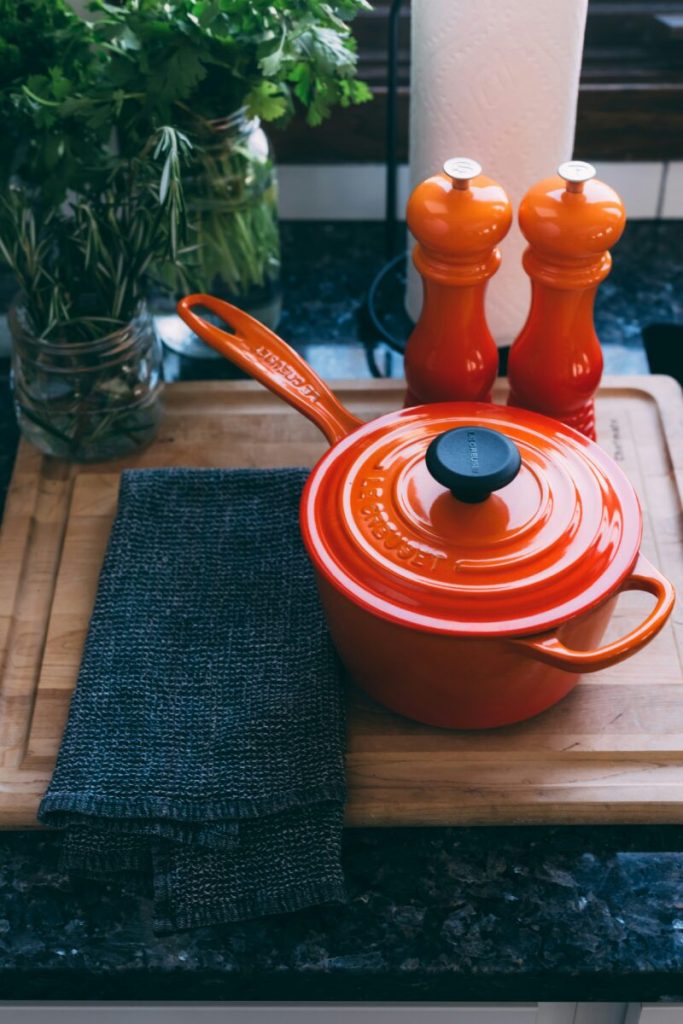
Budget-Friendly Non-Toxic Cookware
Switching to PFAS-free cookware doesn’t have to break the bank. Many affordable options provide excellent cooking performance while ensuring safety from harmful chemicals. Here are some cost-effective choices:
- ProCook – Offers stainless steel and ceramic-coated pans at reasonable prices.
- Judge Cookware – Provides affordable cast iron and stainless steel cookware
- Tower Housewares – Features budget-friendly ceramic non-stick frying pans
- Salter – Produces non-toxic ceramic-coated pans at lower price points
- Go Cook – This is a simple brand often found in supermarkets such as Tesco at really affordable prices. Made from stainless steel it’s affordable yet also great for everyday use and dishwasher friendly.
Many of these brands offer free standard delivery or next day delivery options, making them a perfect choice for those looking for safer alternatives on a budget.
Final Thoughts
Switching to PFAS-free cookware is one of the best choices you can make for human health and environmental safety. By selecting non-toxic materials like cast iron, stainless steel, and ceramic coatings, you can reduce exposure to harmful chemicals while enjoying healthier cooking options. Always check delivery information and UK bank holidays when ordering cookware online to ensure timely arrival.
Whether you’re looking for the best frying pans, nonstick cookware, best non-toxic air fryer, or a good value non-stick frying pan, prioritising product safety will help you make better choices for everyday cooking. What is your go to UK pfas free cookware?
FAQ’s
Q: What are the health risks of PFAS chemicals in cookware?
A: A synthetic chemical, PFAS exposure has been linked to cancer, hormonal disruptions, liver and kidney damage, and immune system issues.
Q: Are ceramic non-stick coatings safe?
A: Yes, ceramic non-stick coatings made from a sand derivative are a safer alternative to traditional non-stick coatings containing toxic chemicals.
Q: Can I use stainless steel pans on induction hobs?
A: Yes, most high-quality stainless steel pans are compatible with induction hobs.
Q: Why should I avoid non-stick pans with traditional coatings?
A: Traditional non-stick coatings contain synthetic chemicals that can release toxic fumes at high temperatures.
Q: Is cast iron a good alternative to non-stick cookware?
A: Yes, an uncoated cast-iron pan provides excellent heat retention and a natural nonstick coating when properly seasoned.
Q: Where can I buy the best non-toxic cookware in the UK?
A: Brands like Le Creuset, GreenPan, and ProCook offer PFAS-free alternatives with next working day delivery options available through retailers like Royal Mail.

